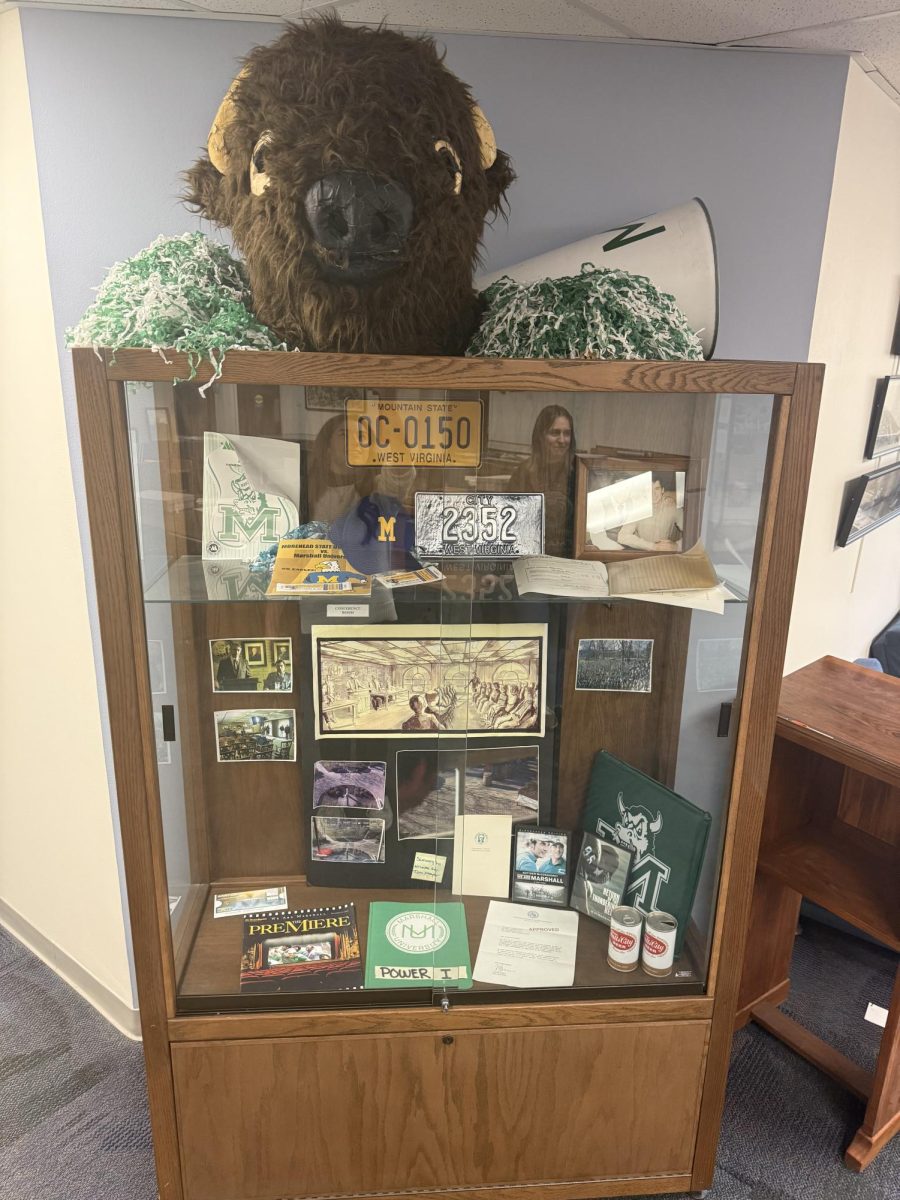Vince Carelli Honors Father During 52nd Fountain Ceremony
The memorial fountain during it’s last seconds while flowing during the ceremony.
November 14, 2022
As Vince Carelli—who was a day shy of his third birthday—crawled into bed, he looked towards the tearful face of his mother and asked why his father had not come home yet. She pointed to the framed picture of Jesus Christ above the toddler’s bed and explained how his dad had gone to be with him now.
“But I don’t want Daddy to go away,” Vince Carelli said. “I love him.”
The night before—on Nov. 14, 1970—Southern Airways Flight 932 crashed into the hillside as it approached the Tri-State Airport. Vince’s father Al Carelli Jr., alongside 74 other Thundering Herd coaches, teammates, staff, supporters and flight crew members, perished in the accident.
Fifty-two years later, Vince Carelli stood proudly alongside the Marshall and Huntington communities at the annual Memorial Fountain Ceremony to reflect on the night that changed his and so many others’ lives forever.
“My perspective of Marshall and all that we honor today is a little different,” Vince Carelli said. “I have no memories. I don’t remember my dad. My perspective is through the eyes of people my dad impacted.”
Before the crash, Al Carelli Jr. had accepted a position as the offensive line coach for Marshall’s Thundering Herd football Team. He had moved his family from New Jersey to West Virginia with plans to start a new life. Three months later, Al Carelli died in the worst sports tragedy in American history.
Documenting every step for her boys was Vince Carelli’s mother, Marti Carelli-Gilbert. Four days after the crash, she began writing letters to her sons to preserve the memory of their father. These letters would later be published in her book titled “Halftime.”
“The sole purpose of my mother writing that book was so that my brother—who was three months old at the time—and I would know our father and who he was,” Vince Carelli said.
In the years after the passing of his father, Vince Carelli continued to carry on his father’s legacy. Every time he returned to Huntington, he was reminded that he carried his father’s spirit and love of football with him.
“There is no doubt in my mind why football is so ingrained into who I am today,” Vince Carelli said. “My dad loved coaching football so much. He always wanted to coach college football—that was his dream.”
Following in his father’s footsteps, Vince Carelli played as quarterback for the University of Tennessee at Chattanooga where he majored in business. He has enjoyed a over-30-year career in insurance.
He now resides in Chattanooga with his wife Tamra. Their daughter Lauren attends Belmont University in Nashville and is a member of the women’s tennis team.
The story of the 75 who lost their lives on that rainy night are intrinsically tied to the story of Marshall University today, according to President Brad D. Smith. He also shared how the plane crash had personally affected his upbringing.
“I was six years old on that tragic night when the sirens wailed and the mountain near my home burned,” Smith said. “I was a junior attending Marshall University when the Thundering Herd football team achieved their first winning season following the tragedy. And I stand humbly before you today, a proud son of Marshall, and the first alumnus in 185 years to return home to serve her as the president of this amazing institution.”
Other guest speakers at the event included SGA Vice-President Walker Tatum, Head Football Coach Charles Huff, Athletic Director Christian Spears and Director of Alumni Relations Matt James.
“Our story as a university and as the Huntington community is about everything that has happened in the 52 years since that crash,” James said. “Our story is one of resiliency, inspiration and success. It’s also a story about so many special people who rose from the ashes and built lives of purpose. Our keynote speaker, Mr. Vince Carelli, is one of those special people.”
Family and friends were invited to quietly place a white rose on the fountain commemorating each life lost. At that time, the fountain was turned off and the crowd observed a moment of silence as time stood still.













